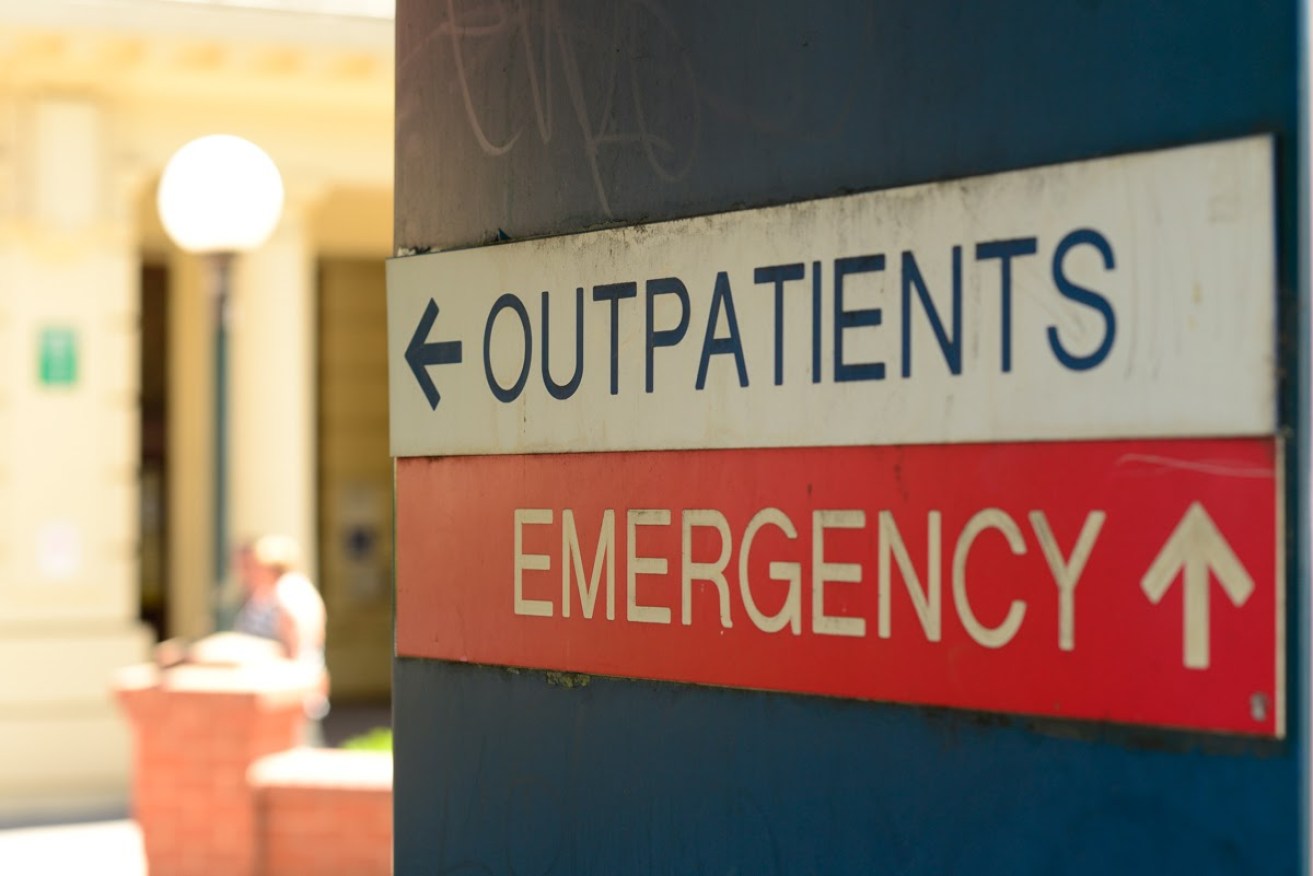Mental health emergency room waiting times halved
The number of mental health patients languishing for days in South Australia’s emergency departments has steeply declined, new figures show.


During the month of October 2014, 284 mental health patients were kept in emergency departments for 24 hours or more, before being transferred to a mental health bed for specialised treatment.
New SA Health figures, released to InDaily, show that number was down to 76 in December last year.
The average SA emergency department waiting time for mental health patients also reduced – from nearly 16 hours in late 2014 to eight hours by the end of 2015.
Doctors have repeatedly warned that long stays in emergency departments cause mental health patients to deteriorate, often to the point where they are chemically or physically restrained.
Emergency department staff have also suggested long waits for mental health patients have been a major contributor to the severe overcrowding of SA hospitals, and even linked the problem to deaths at the Royal Adelaide Hospital.
Newly appointed Minister for Mental Health Leesa Vlahos said that “even one person waiting longer than 24 hours in our emergency department is unacceptable”.
“[However] I am committed to ensuring people needing to access mental health services can move from the emergency department to a bed much quicker, so they can start their care sooner,” she said.
“It’s pleasing to see the average emergency department waiting time for mental health consumers has reduced [and] the number of people with mental health issues waiting more than 24 hours in our emergency departments has gone … from about nine down to two people per day.”
In part, Vlahos attributes the improvement to the opening of extra mental health beds.
Since mid-2014, 30 new acute mental health beds (usually used for patients suffering psychosis) and six new forensic mental health beds (usually for patients who have been found not guilty of a crime by reason of mental incapacity) have been opened in South Australia.
In July 2015, then-Public Advocate John Brayley told InDaily that a lack of forensic beds meant some patients were being held in prison rather than in a proper treatment facility.
Four more forensic beds are due to be opened in the coming months, according to SA Health.
Dr David Pope, a senior emergency department doctor and president of the South Australian Salaried Medical Officers’ Association, told InDaily the increased funding for mental health beds meant hospitals were now able to treat more patients, quicker.
Pope, who has been a vocal critic of the State Government’s performance on health, said there had been “considerable efforts by the minister and the government” to curb the crisis.
“From the front line, it’s worked,” he said.
“There’s been extra short-stay [mental health] beds available – it’s certainly made a big difference.
“We aren’t getting people staying five days [on a] regular basis.
“But it still happens.”
Pope said emergency departments – where lights are on 24/7 and there was frequent loud noise – were “inhumane” places for patients suffering psychosis.
He said more mental health beds had improved the capacity emergency department staff to treat more patients, and reduced waiting times across the board.
Vlahos said changes to the way patient movement is coordinated had also helped drive the improvement.
An SA Health spokesperson said that one clinical director is now responsible for decisions in each local health network, whereas previously, “decisions across a range of matters were made by a combination of clinicians and administrators”.
“In 2015, a single mental health clinical director was established for each local health network, who is specifically accountable for strategy, clinical services, consumer flows, consumer outcomes and efficiency of the mental health service,” the spokesperson said.
Vlahos said the Government’s Mental Health Commission would help also improve outcomes for mental health patients going forward.
“The commission will further champion the cause of people with a lived experience of mental illness and will lead the development of a five-year mental health plan,” she said.
“Through the commission, we will continue to seek the valuable input of consumers and carers to deliver further improvements in mental health care and treatment.”
South Australia’s health system is divided into local health networks – for central Adelaide, northern Adelaide, southern Adelaide, country health and women’s and children’s health.




